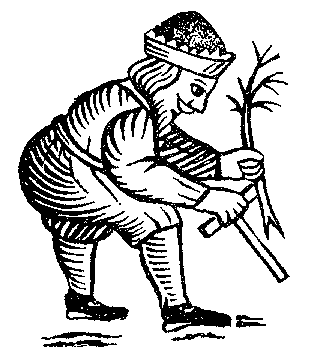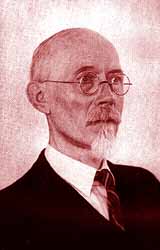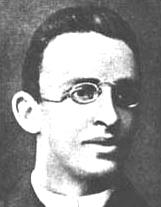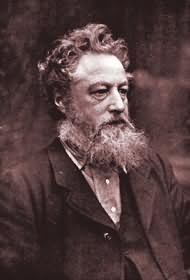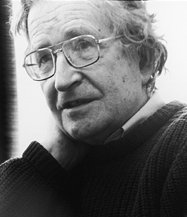
When the world's two great propaganda systems agree on some doctrine, it requires some intellectual effort to escape its shackles. One such doctrine is that the society created by Lenin and Trotsky and molded further by Stalin and his successors has some relation to socialism in some meaningful or historically accurate sense of this concept. In fact, if there is a relation, it is the relation of contradiction.
It is clear enough why both major propaganda systems insist upon this fantasy. Since its origins, the Soviet State has attempted to harness the energies of its own population and oppressed people elsewhere in the service of the men who took advantage of the popular ferment in Russia in 1917 to seize State power. One major ideological weapon employed to this end has been the claim that the State managers are leading their own society and the world towards the socialist ideal; an impossibility, as any socialist -- surely any serious Marxist -- should have understood at once (many did), and a lie of mammoth proportions as history has revealed since the earliest days of the Bolshevik regime. The taskmasters have attempted to gain legitimacy and support by exploiting the aura of socialist ideals and the respect that is rightly accorded them, to conceal their own ritual practice as they destroyed every vestige of socialism.
As for the world's second major propaganda system, association of socialism with the Soviet Union and its clients serves as a powerful ideological weapon to enforce conformity and obedience to the State capitalist institutions, to ensure that the necessity to rent oneself to the owners and managers of these institutions will be regarded as virtually a natural law, the only alternative to the 'socialist' dungeon.
The Soviet leadership thus portrays itself as socialist to protect its right to wield the club, and Western ideologists adopt the same pretense in order to forestall the threat of a more free and just society. This joint attack on socialism has been highly effective in undermining it in the modern period.
One may take note of another device used effectively by State capitalist ideologists in their service to existing power and privilege. The ritual denunciation of the so-called 'socialist' States is replete with distortions and often outright lies. Nothing is easier than to denounce the official enemy and to attribute to it any crime: there is no need to be burdened by the demands of evidence or logic as one marches in the parade. Critics of Western violence and atrocities often try to set the record straight, recognizing the criminal atrocities and repression that exist while exposing the tales that are concocted in the service of Western violence. With predictable regularity, these steps are at once interpreted as apologetics for the empire of evil and its minions. Thus the crucial Right to Lie in the Service of the State is preserved, and the critique of State violence and atrocities is undermined.
It is also worth noting the great appeal of Leninist doctrine to the modern intelligentsia in periods of conflict and upheaval. This doctrine affords the 'radical intellectuals' the right to hold State power and to impose the harsh rule of the 'Red Bureaucracy,' the 'new class,' in the terms of Bakunin's prescient analysis a century ago. As in the Bonapartist State denounced by Marx, they become the 'State priests,' and "parasitical excrescence upon civil society" that rules it with an iron hand.
In periods when there is little challenge to State capitalist institutions, the same fundamental commitments lead the 'new class' to serve as State managers and ideologists, "beating the people with the people's stick," in Bakunin's words. It is small wonder that intellectuals find the transition from 'revolutionary Communism' to 'celebration of the West' such an easy one, replaying a script that has evolved from tragedy to farce over the past half century. In essence, all that has changed is the assessment of where power lies. Lenin¹s dictum that "socialism is nothing but state capitalist monopoly made to benefit the whole people," who must of course trust the benevolence of their leaders, expresses the perversion of 'socialism' to the needs of the State priests, and allows us to comprehend the rapid transition between positions that superficially seem diametric opposites, but in fact are quite close.
The terminology of political and social discourse is vague and imprecise, and constantly debased by the contributions of ideologists of one or another stripe. Still, these terms have at least some residue of meaning. Since its origins, socialism has meant the liberation of working people from exploitation. As the Marxist theoretician Anton Pannekoek observed, "this goal is not reached and cannot be reached by a new directing and governing class substituting itself for the bourgeoisie," but can only be "realized by the workers themselves being master over production." Mastery over production by the producers is the essence of socialism, and means to achieve this end have regularly been devised in periods of revolutionary struggle, against the bitter opposition of the traditional ruling classes and the 'revolutionary intellectuals' guided by the common principles of Leninism and Western managerialism, as adapted to changing circumstances. But the essential element of the socialist ideal remains: to convert the means of production into the property of freely associated producers and thus the social property of people who have liberated themselves from exploitation by their master, as a fundamental step towards a broader realm of human freedom.
The Leninist intelligentsia have a different agenda. They fit Marx's description of the 'conspirators' who "pre-empt the developing revolutionary process" and distort it to their ends of domination; "Hence their deepest disdain for the more theoretical enlightenment of the workers about their class interests," which include the overthrow of the Red Bureaucracy and the creation of mechanisms of democratic control over production and social life. For the Leninist, the masses must be strictly disciplined, while the socialist will struggle to achieve a social order in which discipline "will become superfluous" as the freely associated producers "work for their own accord" (Marx). Libertarian socialism, furthermore, does not limit its aims to democratic control by producers over production, but seeks to abolish all forms of domination and hierarchy in every aspect of social and personal life, an unending struggle, since progress in achieving a more just society will lead to new insight and understanding of forms of oppression that may be concealed in traditional practice and consciousness.
The Leninist antagonism to the most essential features of socialism was evident from the very start. In revolutionary Russia, Soviets and factory committees developed as instruments of struggle and liberation, with many flaws, but with a rich potential. Lenin and Trotsky, upon assuming power, immediately devoted themselves to destroying the liberatory potential of these instruments, establishing the rule of the Party, in practice its Central Committee and its Maximal Leaders -- exactly as Trotsky had predicted years earlier, as Rosa Luxembourg and other left Marxists warned at the time, and as the anarchists had always understood. Not only the masses, but even the Party must be subject to "vigilant control from above," so Trotsky held as he made the transition from revolutionary intellectual to State priest. Before seizing State power, the Bolshevik leadership adopted much of the rhetoric of people who were engaged in the revolutionary struggle from below, but their true commitments were quite different. This was evident before and became crystal clear as they assumed State power in October 1917.
A historian sympathetic to the Bolsheviks, E.H. Carr, writes that "the spontaneous inclination of the workers to organize factory committees and to intervene in the management of the factories was inevitably encourage by a revolution with led the workers to believe that the productive machinery of the country belonged to them and could be operated by them at their own discretion and to their own advantage" (my emphasis). For the workers, as one anarchist delegate said, "The Factory committees were cells of the future... They, not the State, should now administer."
But the State priests knew better, and moved at once to destroy the factory committees and to reduce the Soviets to organs of their rule. On November 3, Lenin announced in a "Draft Decree on Workers' Control" that delegates elected to exercise such control were to be "answerable to the State for the maintenance of the strictest order and discipline and for the protection of property." As the year ended, Lenin noted that "we passed from workers' control to the creation of the Supreme Council of National Economy," which was to "replace, absorb and supersede the machinery of workers' control" (Carr). "The very idea of socialism is embodied in the concept of workers' control," one Menshevik trade unionist lamented; the Bolshevik leadership expressed the same lament in action, by demolishing the very idea of socialism.
Soon Lenin was to decree that the leadership must assume "dictatorial powers" over the workers, who must accept "unquestioning submission to a single will" and "in the interests of socialism," must "unquestioningly obey the single will of the leaders of the labour process." As Lenin and Trotsky proceeded with the militarization of labour, the transformation of the society into a labour army submitted to their single will, Lenin explained that subordination of the worker to "individual authority" is "the system which more than any other assures the best utilization of human resources" -- or as Robert McNamara expressed the same idea, "vital decision-making...must remain at the top...the real threat to democracy comes not from overmanagement, but from undermanagement"; "if it is not reason that rules man, then man falls short of his potential," and management is nothing other than the rule of reason, which keeps us free. At the same time, 'factionalism' -- i.e., any modicum of free expression and organization -- was destroyed "in the interests of socialism," as the term was redefined for their purposes by Lenin and Trotsky, who proceeded to create the basic proto-fascist structures converted by Stalin into one of the horrors of the modern age.1
Failure to understand the intense hostility to socialism on the part of the Leninist intelligentsia (with roots in Marx, no doubt), and corresponding misunderstanding of the Leninist model, has had a devastating impact on the struggle for a more decent society and a livable world in the West, and not only there. It is necessary to find a way to save the socialist ideal from its enemies in both of the world's major centres of power, from those who will always seek to be the State priests and social managers, destroying freedom in the name of liberation.
1 On the early destruction of socialism by Lenin and Trotsky, see Maurice Brinton, The Bolsheviks and Workers' Control. Montreal: Black Rose Books, 1978, and Peter Rachleff, Radical America, Nov. 1974, among much other work.
The Soviet Union Versus Socialism
Chomsky info

